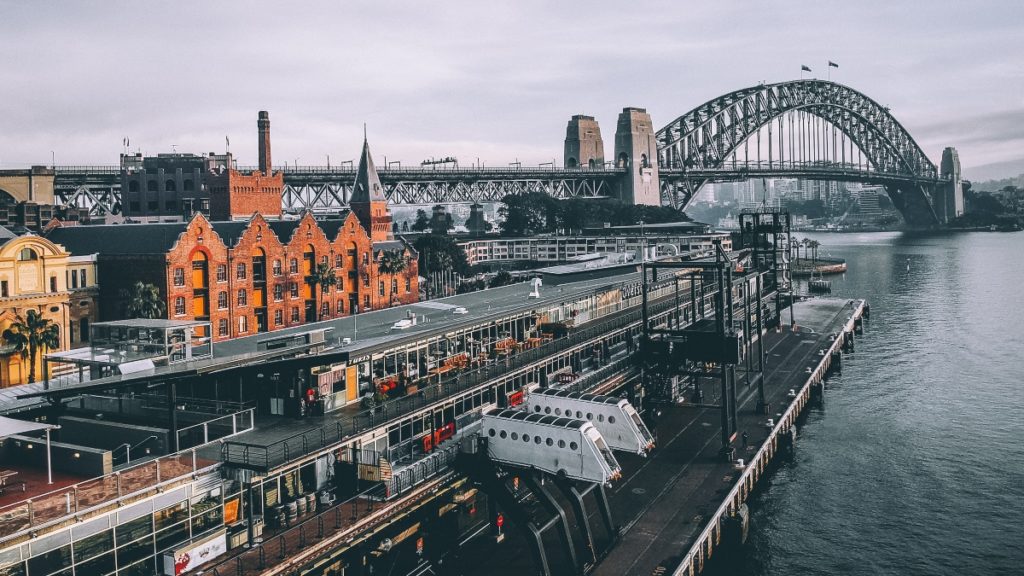
If you are planning to study in Australia, then it is highly likely that you have been considering your accommodation options. Once you have chosen your institution and course, the next step will be to find a place to stay. Finding suitable accommodation is a crucial aspect of studying in Australia. Here’s a comprehensive guide to help you navigate your options and find the best place to stay:
Table of Contents
On-Campus Housing
There are many accommodation options available to international students on Australian university campuses. In general and depending on the universities, you will have the choice between a single or double room in residential colleges, halls of residence, or apartments. Sometimes you may even have the option of renting a self-contained studio (more expensive of course!). Usually, accommodations are close to or on campus. Bathroom and kitchen facilities are common rooms to share. All utilities are included in the rent, with internet access in each room. It’s convenient and fosters a sense of community.
How to apply?
On campus accomodations are a popular option and competition is fierce to get a room!
It is therefore important to do this as soon as possible. To obtain a room on campus, you will need to lodge an application with the university where you are going to study. To do this, go to the faculty’s website, in the section ‘student accommodation’ then ‘on campus housing’. You must then complete an online form, submit your request and wait. If your request is accepted, you will need to sign and return the ‘Residency Agreement’ along with a first payment of rent.
How much does it cost?
Staying on campus is relatively expensive. Prices vary from university to university but to give you an idea, a room costs between $300 and $400 per week (in Sydney). The price will depend on the location of the room, its size.
This is quite expensive for a room but by staying on campus you will cut on other costs such as public transport fares or utilities (electricity, water, internet). In general, staying on campus will give you access to discounts to sports halls, university restaurants and other activities.
Prices vary greatly depending on the chosen university and location of the accomodation. You should contact your faculty’s accommodation service for a price guide.
Pros and Cons
This is a great place to meet new friends and become totally immersed in university life. You will meet a lot of people in the same situation as you and you will have a lot of social opportunities (parties, bbq, meetings etc.)
Coming with your accommodation, you will usually have access to many facilities such as gyms, swimming pools and cinema rooms. Another huge advantage of being on campus or close by is that you won’t have to pay for public transport.
On the other hand, some students find it difficult to disconnect from their studies when living on campus. Some students also find the social opportunities distracting from their studies. And last but not least, this type of accommodation is quite expensive, and you will have limited privacy.
Homestays
You will be renting a room in a private home, leaving therefore with the existing owners (usually a family). Ideal for international students to experience Australian culture and improve language skills. The process to get a room is simple and can be done before from overseas.
How does it work?
To find a room with a host family, you will need to go through an agency such as Homestay or Global Experience. Register online and indicate your preferences, tastes and what you are looking for. The agency will then look for a family that meets your expectations. Some universities also have a homestay service, you should inquire about this point before going through an agency.
Cost
By going through an agency, you will have the placement fee on top of your rent. These fees vary between $250 and $350 depending on the city. Rent is usually payable weekly. You will need to make transfers directly to the agency that arranged the placement. The cost of homestay varies greatly, but will be around $280 per week.
Pros and Cons
Like any type of accommodation, there will be advantages and disadvantages to staying with a host family. Among the advantages of this system, the ease of organisation and the fact that everything is ready before your departure. Living with a host family will also bring you the confort of a family cocoon.
An other massive advantage is that it can be considerably cheaper than other forms of accommodation. Indeed you won’t have to pay for utilities and you will be usually provided with meals and laundry.
Australians are very welcoming and sociable, they are sure to strike up a conversation and will be helpful for your first steps in Australia. However, you will have less privacy and will need to adapt to household rules.

Shared House
Shared apartments are a great way to save money. They are very common in Australian cities as this allows access to larger properties while paying a low rent. You will usually have your own room in a shared house. Facilities are usually common but you can also have your own bathroom…
How to find a shared accommodation?
You can find a lot of offers on dedicated websites. Among them are Flatmates, Flatshare or Gumtree. You will also find ads on university notice boards or on Facebook groups. Finally, talk about it around you, it is very likely that one of your classmates is looking for a roommate.
Once the ad of your dreams has been found, go visit the place and meet your future roommates. Remember to travel by public transport between the house and your university to find out how long it will take you. Also remember to check the neighbourhood (atmosphere, shops nearby, etc.). Once you accept the offer, you will usually need to sign the lease or at least have your name on it. You will have to pay a deposit (bond) usually 2 weeks rent.
Cost
The cost of rental accommodation varies depending on your location, and the type of accommodation you choose. Shared accommodation is a nice way to find a place to stay on a low budget. In fact, you can find rooms starting at $280/week. Prices will be higher in the city center or near the city center than in the suburbs.
Pros and Cons
One of the advantages of shared accommodation, is that it allows you to stay in the city center or close at an affordable price. You will also meet new people with different backgrounds. However, you always have the risk of not getting along with your roommates. In this case, try to discuss about what is not working and if it really does not work, you can always leave the house (2 weeks notice in general).
Purpose-Built Student Accommodation (PBSA)
You can also find specialised housing solutions for students, such as Unilodge. These are establishments that offer fully equipped rooms for students. You choose the city of your studies or directly the university where you are enrolled and you will have access to a wide choice of rooms in student accommodation. You then choose the length of your stay and the accommodation that interests you and register directly online.
Pros and Cons
The rooms are very comfortable (AC, TV, private bathroom). You will also have access to all the building’s facilities such as swimming pool, games rooms, gym, etc. The most important negative point is that these are often quite expensive, more expensive than private rentals. Count on average $450 / week.
Hostels and Budget accommodations
Hostel accommodation are suitable for short stays or while searching for long-term housing. Bathroom and kitchen are shared so are the laundry, lounge area and recreation facilities.
The price of hostel accommodation depends both on location and the types of services provided. You can also expect to pay more for private or twin-share rooms than dorm-style accommodation.
The cost is low and it is a flexible option. However, you will need to share facilities with a large number of people. In addition, people in hostels are generally in ‘vacation mode’ and not students. It may therefore be difficult to have calm … This solution may however allow you to meet new people from different countries, in different situations. It is also a good place to find job offers. Word of mouth can help you find a part-time job in hospitality, cleaning, etc.
How to pick your student accommodation
Before you decide on your accommodation, you should make a list of the important points for you:
Location: Proximity to university, public transport, and amenities.
Budget: Consider all costs including rent, utilities, and transport.
Safety: Research the safety of the neighborhood.
Facilities: Check for necessary amenities like laundry, internet, and study areas.
Lease Terms: Understand the lease duration, bond requirements, and termination conditions.
How to find Accommodation
University Resources
- University Websites: Check for on-campus housing options and application processes.
- Student Services: Utilize student housing offices for advice and assistance.
Online Platforms
- Rental Websites: Sites like realestate.com.au, Domain, and Flatmates.com.au offer extensive listings for private rentals.
- Student Housing Platforms: Websites like UniLodge, Urbanest, and Student.com specialize in student accommodation.
Social Media and Forums
- Facebook Groups: Join student housing groups where members post available rentals and share advice.
- Forums: Platforms like Reddit and specific university forums can provide useful tips and listings.
Local Real Estate Agents
- Visit local real estate agents who can help find rental properties within your budget and preferences.
FAQs Student Accommodation
Consider location, proximity to the institution, safety, facilities, transportation, and overall cost.
Yes, many universities offer on-campus accommodation for international students.
Hostels, serviced apartments, and temporary rentals are available for short-term stays.
Start searching several months in advance, as demand can be high, especially in popular areas.


























